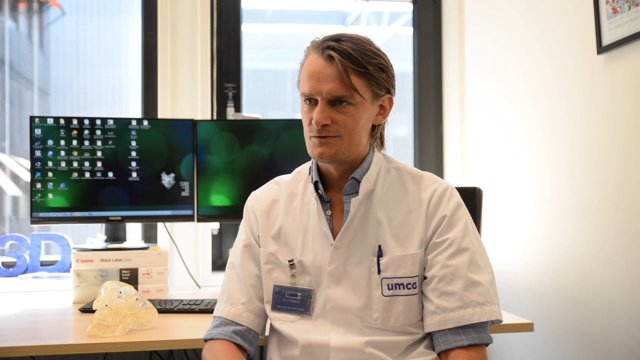It’s official, with effect from today – 1 July 2020: The law (wet BIG) official acknowledged and registered Technical Physicians (the legal term is Clinical Technologist) as healthcare professionals, to treat individual patients. Programme Director Heleen Miedema points out that “This is a first for the medical world – never before have technical university graduates been granted positions in individual patient care.”
Technical Physicians in the law BIG
Technical Physicians are now officially registered healthcare providers. Technical Physicians have a specialised knowledge domain of technical medicine. Within that domain, practitioners of Technical Medicine are now authorised to diagnose patients and perform medical procedures, such as surgical procedures, catheterisations, injections, and biopsies, as well as procedures involving ionising radiation for diagnoses or therapies. Technical Physicians are authorised to submit invoices for their procedures.
The law (wet BIG) defines a clinical technologist’s field of expertise as follows:
“The clinical technologist’s field of expertise covers the optimisation of existing procedures in technical medicine, the use of technology to design and develop new diagnostic methods and therapies, and the performance of complex technical medical procedures in the technical medicine subdomain of medicine in which the clinical technologist has been trained”
University of Twente – Technical Medicine alumnus Dr Joep Kraeima, University Medical Center Groningen (UMCG)
Dr Joep Kraeima, a University of Twente – Technical Medicine alumnus who is currently employed as a Technical Medical Specialist in the Department of Oral and Maxillofacial Surgery at the UMCG, feels that inclusion in the wet BIG is of great added value to the profession: “In the past, those who wished to pursue professional development in clinical practice faced certain barriers. This was comparable to medical school graduates, who have to train to become specialists and to take on their own responsibilities in those areas. Those barriers (there are more than one) will now be eliminated.” Dr Kraeima’s research focuses on three domains within the Department of Oral and Maxillofacial Surgery: oncology, mandibular corrections, and jaw joint surgery. In each of these domains, he supports the team by providing expertise in the field of 3D technology. Joep Kraeima explains that “In the context of my own work, inclusion in the wet BIG means that I can now take on responsibilities that are in line with my position. In addition, I will be able to pursue my clinical occupation as a full healthcare professional. Now, I will also be able to independently handle statements of expenses and write invoices and administrative procedures.”
University of Twente – Technical Medicine alumnus – Mattiènne van der Kamp, Medisch Spectrum Twente Hospital in Enschede
Mattiènne van der Kamp, another University of Twente – Technical Medicine alumnus, works for the Medisch Spectrum Twente. For him, too, inclusion in the wet BIG represents a major leap forward. “Technical Physicians will now be able to act more effectively and directly to meet the growing demand for technological innovations in healthcare, through research, innovation, and implementation in everyday practice.” In his role as a Technical Physician, Mattiènne van der Kamp is part of the Paediatrics department’s eHealth asthma team. He remotely monitors children who suffer from asthma. Next to his research work, he wears his white coat and to do specialist paediatric lung function diagnosis. Mattiènne van de Kamp points out that “Inclusion in the wet BIG gives me greater authority to treat my own patients. This means that, in my role as a Technical Medical Physician, as a part of my team I can use new technology to help improve the quality and efficiency of paediatric asthma care.”
Background to Technical Medicine
The University of Twente launched the Technical Medicine educational programme in 2003. Its goal was to produce healthcare professionals who would be capable of bridging the growing gap between technological innovation and mainstream medicine. Maastricht UMC+ conducted a five-year evaluation project, on behalf of the Ministry of Health, Welfare and Sport. In 2019, the results clearly demonstrated the added value of these healthcare professionals in individual patient care. This unique six-year educational programme, which was designed by Heleen Miedema (Programme Director) and Peter Vooijs (Professor in pathology and medical director of the MIRA institute), is now in great demand at the University of Twente’s Technical Medical Centre.






